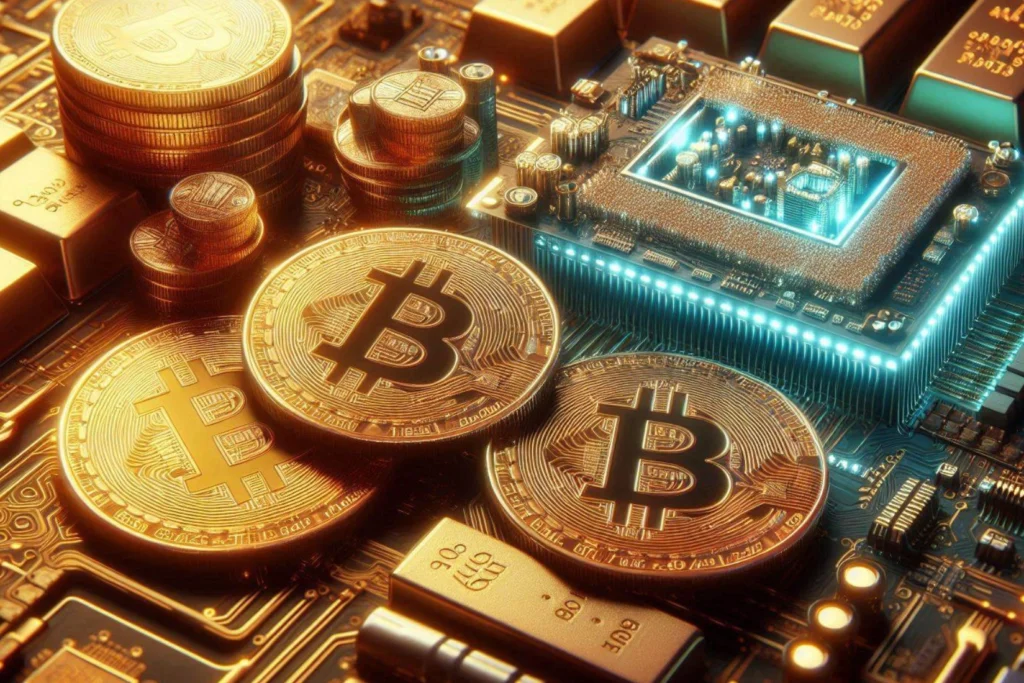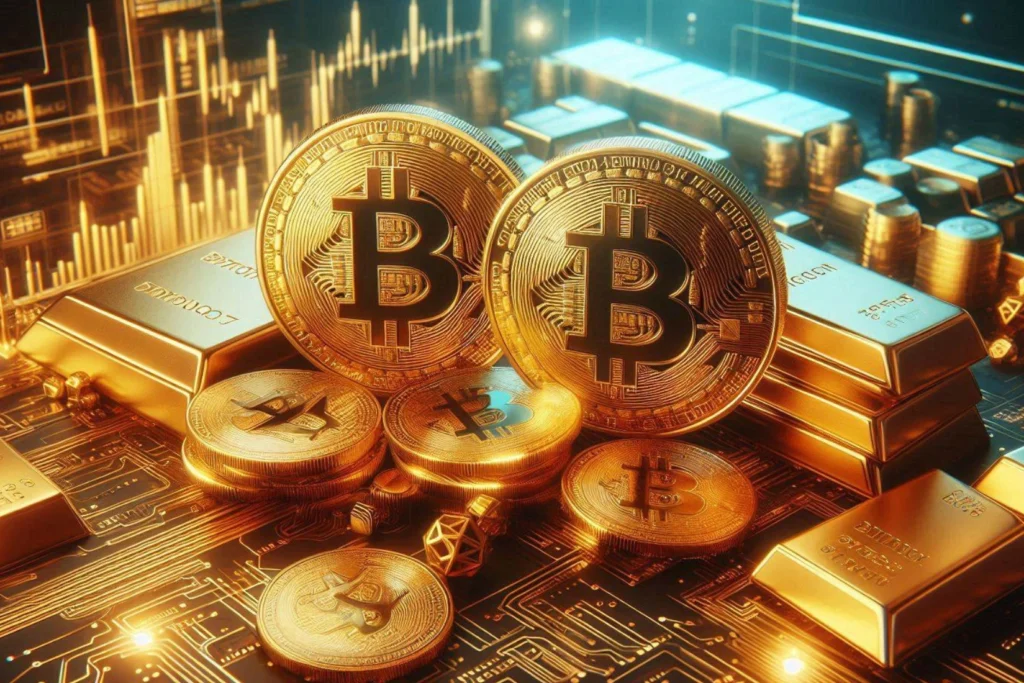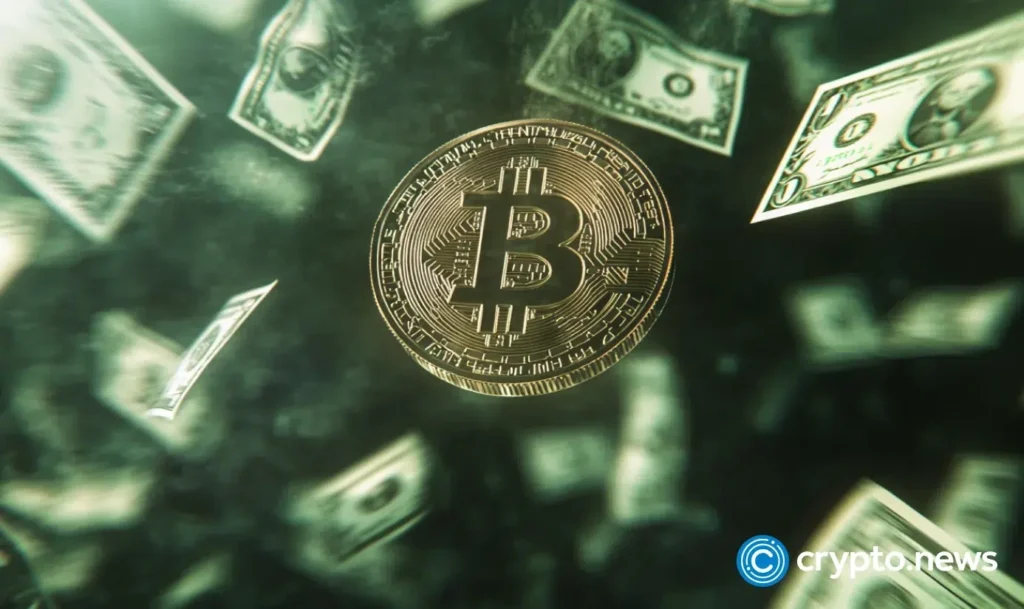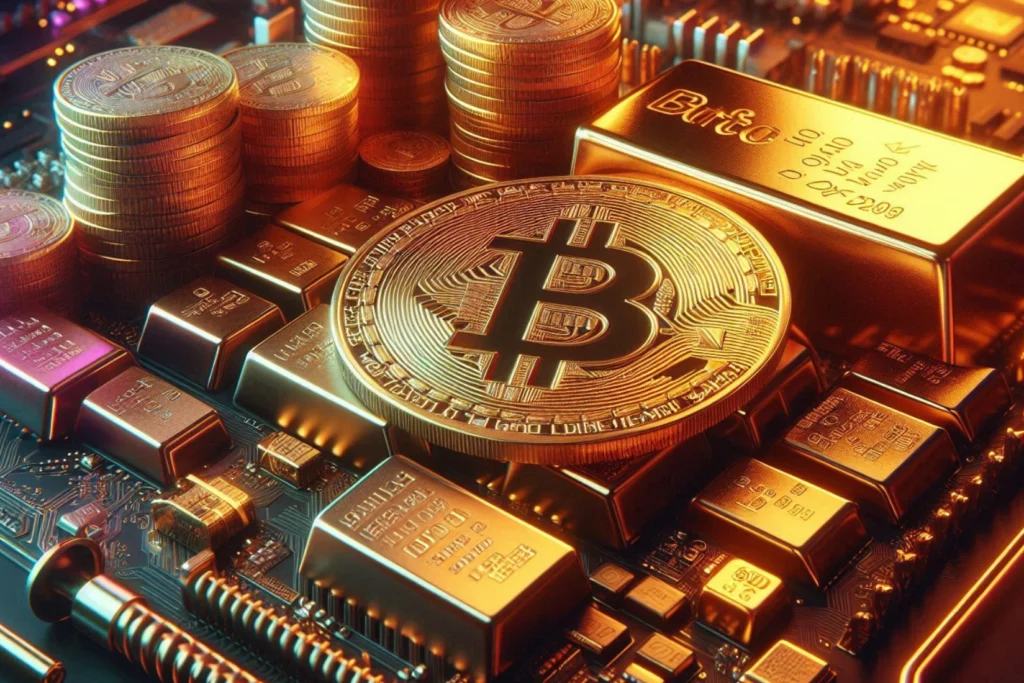If you’ve ever heard someone describe bitcoin as digital gold and thought, “Wait, what does that even mean?” — you’re not alone. It sounds a bit dramatic at first, like crypto hype—but the comparison actually has some teeth.
Here’s a step-by-step look at why people say Bitcoin is like gold… and how you can understand it without needing a finance degree.
Step 1: Get Why Scarcity Matters when Bitcoin as Digital Gold
Gold is valuable partly because there’s not much of it. Simple, right? It’s rare, hard to mine, and can’t be printed on a whim.
Now, Bitcoin has a similar trick: it’s capped at 21 million coins. Forever. That number can’t be changed—unless, well, the entire global network agrees to rewrite the rules (not likely).
So scarcity? Check. But while gold relies on nature, Bitcoin relies on code.


Step 2: Understand the Store of Value Idea
People use gold to store wealth—especially in uncertain times. It holds value across decades, even centuries. Gold doesn’t go bankrupt.
Bitcoin aims to do the same. It’s not tied to any country, can’t be inflated by governments, and lives entirely online. Some see it as “digital insurance” against the chaos of traditional finance.
Of course, it’s still early days… Bitcoin’s only been around since 2009. So while it’s trying to be a store of value, not everyone’s convinced just yet.

Step 3: Think About Portability (This One’s Wild)
Let’s say you have $500,000 worth of gold. You want to take it across a border. Not fun. Not fast. Maybe not even possible.
With Bitcoin, though? You could memorize a 12-word seed phrase and walk across a border with zero physical assets. That’s… kind of game-changing.
This is one area where bitcoin as digital gold feels futuristic—because it literally is.

Step 4: Know How Verification Works
Gold has to be checked, tested, maybe even melted down to prove it’s legit. That takes time—and trust.
Bitcoin is verified instantly by the blockchain. Every transaction is recorded, every coin traceable. No middlemen needed.
It’s like a public record that updates itself, all the time. Sounds techy, but it’s actually one of Bitcoin’s biggest strengths.

Step 5: Ask If It’s Stable Enough—Yet
This is where the gold comparison gets tricky. Gold? Stable. Boring. You won’t get rich overnight, but you probably won’t panic-sell either.
Bitcoin? It’s a rollercoaster. Huge gains, brutal dips, emotional tweets… you get the picture.
So while some people treat Bitcoin like digital gold, others still see it as a high-risk asset. Maybe over time it calms down—but right now, it’s more “digital adrenaline” than “digital safety blanket.”

Final Thoughts: Can Bitcoin Really Be Digital Gold?
The answer? Maybe. It depends what you’re looking for. Bitcoin as digital gold works in theory—limited supply, portability, and a shot at long-term value. But the volatility and youth of the network still make it a bit of a gamble.
That said, gold took thousands of years to earn its status. Bitcoin’s barely a teenager. Who knows where it’ll be in 10, 20, or 50 years?
For now, the best thing you can do is understand the comparison… and make your own call.
Relevant news: 5 Reasons Why People Call Bitcoin ‘Digital Gold’—And How It Compares




